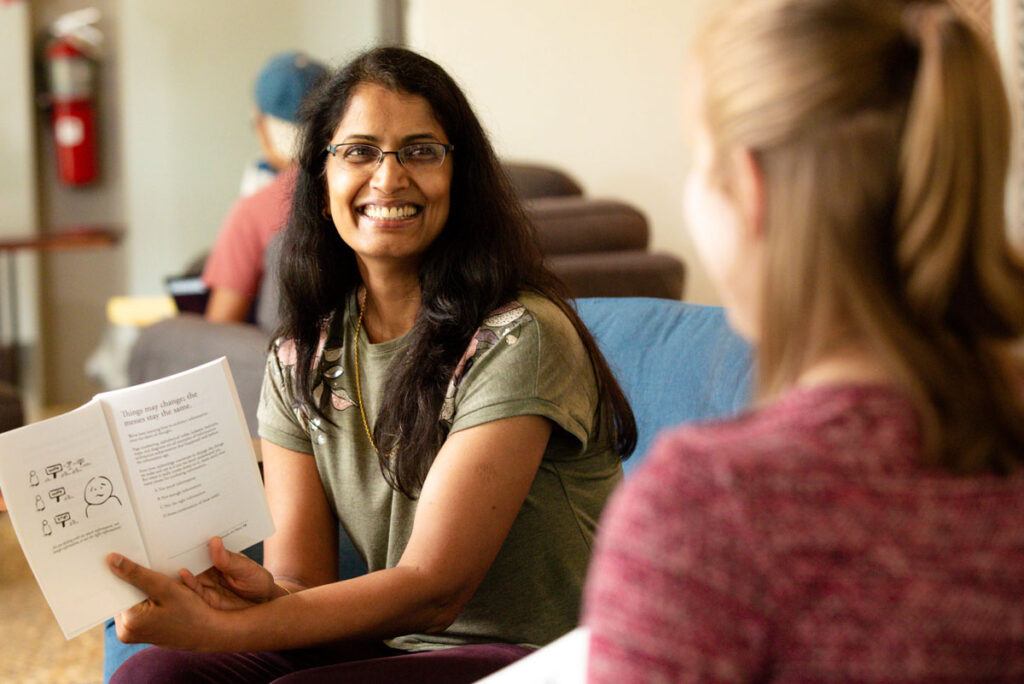
Professional Development is not a one-size-fits-all recipe for success. In fact, it is as varied as individual careers. But not every career path is forged anew, a unique gem wholly unlike anything that has come before. Most of us have careers similar to our colleagues, with whom we’ve shared many experiences. In fact, the entire purpose of Professional Development is to surface and share knowledge amongst fellow practitioners. This is why so many find Professional Development to be a Social Activity.
Professional Development Groups
There was a trend in professional conferences where specialized topics might have a “Birds of a Feather” break-out meeting so folks interested in, for example, Perl and Internationalization could get together and share knowledge and coordinate together. As the internet rose in popularity, these groups could form a more permanent place to commune and share ideas. But the core conceit remains, people enjoy coming together with like-minds and learning from and sharing their knowledge with each other because Professional Development is a Social Activity.
Flocking Together
At SEP, we’ve found many ways to enable our birds of a feather to flock together.
Slack Channels
We use topic specific slack channels to allow for shared expertise. For example, we have an Engineering channel to as a catch-all for software engineering questions and the analogous User Experience channel. There are also more specialized channels for mobile developers, as well as AI Practitioners or Cloud Developers. These channels are a solid way of forming a community of practice.
Hackathons
Hackathons are extremely short-term projects. They can be a fun way to sprint on a topic you may or may not have some experience with. But hackathon projects tend to be the most valuable when you spend time with a colleague who has some experience with the topic. They can either be mobbed, or aggressively partitioned, or a combination of both. Either way, it encourages a different mindset when learning material for a topic and a high bandwidth for communicating. Some post-project reflection would allow the group a great foundation for better learning a new topic.
Study Groups
A Study group is a cohort of folks learning a topic together. Several people will coincidentally find they have a shared interest in a new field. In practice they take many forms, but they all have one goal, strengthen our understating of a topic by sharing responsibility for determining the means and method for gaining that understanding. We collectively decide the syllabus and attempt to build some exercises that will help us learn effectively. We have used them for such diverse topics as Unit Testing, Artificial Intelligence, Customer Experience, and Project Estimation.
Book Clubs
Often, a study group can be more focused, as a syllabus presents itself in a tidy package called a book club. Several people have found it more effective to read and share together for several reasons. The group provides accountability, as your group is relying on you to have done your part and read beforehand. The group provides a diversity of experience through which we can view the material. And it’s fun to talk with your colleagues.
Water-Cooler Time
SEP believes in the power of collocated teams. We also, due to the nature of our customer-based project work, form teams more often than most organizations. This means we have several relationships from past projects that encourage us to stop colleagues in the hall or other common areas and ask for their opinion.
All of these groups are wonderful, but they don’t happen spontaneously without SOMEONE taking action. So keep an eye out for an SEPeer who is “Looking for Group.” More importantly, when you find a particularly interesting part of your career path, start calling out that you are “Looking for Group.” Propose a book club, a study group, sign up on the interest board, or just start talking about your learning. You might just find that Professional Development is a Social Activity.
Get involved in our tech community.
See upcoming events and explore recaps of our recent talks and webinars on topics we’re passionate about, like project estimation and AI-enablement.
You Might Also Like